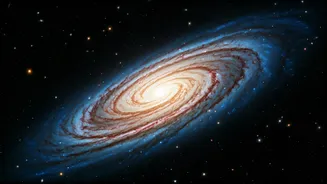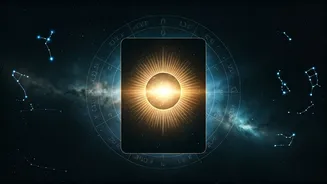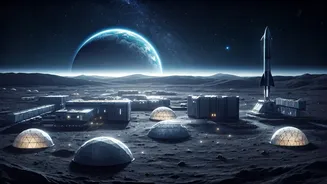Dark Energy's Mystery
The prevailing cosmological model depends heavily on the concept of dark energy, a mysterious force that makes up the majority of the universe's energy content.
It's theorized to be the driving force behind the universe's accelerating expansion. However, the nature of dark energy remains largely unknown. One key aspect of this research involves a novel way of considering dark energy. Instead of assuming it remains constant or increases over time, some scientists are exploring the possibility that dark energy's strength diminishes as the universe expands. This alternative perspective prompts a re-evaluation of our current model. If dark energy is weakening, this could explain the deceleration, which could lead to changes in our understanding of the universe's structure and evolution. The study's findings directly challenge the existing understanding of how the cosmos operates.
Questioning Acceleration Claims
The notion of accelerating expansion relies on observations of distant supernovae, acting as cosmic 'standard candles.' These supernovae's brightness and redshift (stretching of light due to expansion) provide clues about the rate of expansion. The new research, though, scrutinizes the data used to conclude the accelerated expansion, particularly the reliability of these 'standard candles.' Scientists are analyzing the data with alternative methods that account for variations within the supernovae and better calibrates the cosmic distance ladder. By adjusting these methodologies, they have uncovered evidence that contradicts the initial conclusions. This careful approach reveals that the expansion might not be accelerating at all and suggests the possibility of deceleration. This reversal fundamentally reshapes the dynamics of the universe.
Evidence of Deceleration
The study's primary argument is the evidence suggesting the universe's expansion rate might be slowing down. This deceleration implies a change in the driving force behind the expansion. By revisiting the dataset, scientists have provided evidence of an alternative cosmological model. If the universe's expansion were to be decelerating, it could eventually lead to a shift in how matter and energy are distributed across space. It impacts the fate of the universe in a way that suggests a change in the distribution of energy and matter. This new perspective brings to the forefront the need for a comprehensive revision of existing cosmological models. The deceleration hypothesis offers a compelling shift, encouraging scientists to question existing assumptions and explore alternatives.
Cosmological Model Shift
The new findings necessitate a significant shift in cosmological models. The current model, which assumes constant or increasing dark energy, may need to be revised. This study's findings highlight the need for a new framework. The research suggests that a model with weakening dark energy better aligns with the observational data. If the initial assumptions about dark energy are flawed, other cosmic features, such as the overall structure of the universe, might be reinterpreted. The need for a revised model has widespread implications. This would require substantial efforts to account for the impact of dark energy on the universe's composition and evolution. These findings also prompt researchers to look for new methods to test and refine cosmological frameworks. This requires a deeper understanding of dark energy.
Testing the Hypothesis
Researchers employed a variety of methods to confirm the deceleration findings. One notable approach uses an “evolution-free” test, which compares observations of the universe at different times. This approach offers a clear assessment of the expansion rate. By eliminating assumptions related to cosmological evolution, scientists can accurately measure the current expansion rate, thereby validating the findings of the study. This validation process strengthens the claims. In the future, this approach may allow researchers to test assumptions regarding the universe's evolution. This test is crucial for further refining the cosmological models and addressing the mystery of dark energy. The continuous scrutiny of data and testing methodologies will undoubtedly shed more light on the true nature of the cosmos.













